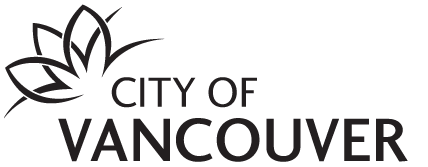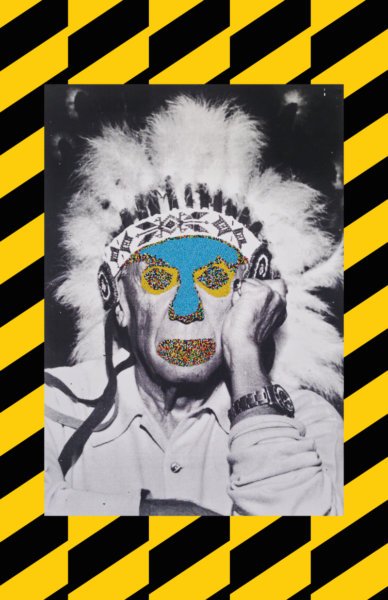Panel
Fall Panels and Public Project by Rolande Souliere
25 October–
26 October 2017
In October, the Or Gallery invites visiting and local speakers for two evenings of informal discussion and presentations on anticolonial work and methods in cooperation with the Critical + Creative Social Justice Studies Cluster (UBC), Vivian Ziherl / Frontier Imaginaries Ed. 3: Toxic Assets, and SFU School for the Contemporary Arts Audain Visual Artist in Residence Program. These events will take place at 555 Hamilton Street.
Further afield, artist Rolande Souliere’s public poster series Coyote Responds: I Like America and America Likes Me, commissioned by the Or Gallery, will be visible in Vancouver, Toronto, and Berlin city streets throughout October.
*October 25, 7pm Firestorms: Anticolonial Methods*
Listen to the audio recording here
In the first iteration of the Critical + Creative Social Justice Studies Cluster’s series of Elemental Panels, six panelists will discuss their work through the lens of fire and discuss the theme, “Firestorms: Anticolonial Methods.”
Participants:
Richard Bell (artist, activist)
Bracken Hanuse Corlett (artist, writer, performer)
Cecily Nicholson (poet, 2017 SFU Writer in Residence)
Jen Sungshine (artist, filmmaker, activist)
Dr. Eldon Yellowhorn (faculty, SFU archaeology & First Nations studies)
Moderated by Dr. Phanuel Antwi (assistant professor of English, UBC)
UBC Social Justice Institute’s (SJI) Anticolonial Methods is a series of events, panels, workshops, screenings, and writings as well as other possible forms, in which the synergies and tensions between critical and creative work are explored. This includes work that engages ongoing colonial and racial violence in their various—total, symbolic, subtle, overt, unexpected, quotidian, casual, official—modes of actualisation.
The Elemental Panels program assembles academics, artists, and activists whose contributions to critical racial, anticolonial, and feminist thought and practice draw from the signifying richness of the elements—air, water, fire, and earth.The hope is to create space for, and to support, conversations that spark the imagination and sustain all emergent and possible anticolonial practices.
*October 26th, 7pm, Lay of the Land: Two projects in process*
Am Johal and Rachel O’Reilly will discuss their ongoing work examining ecologies of extraction and accumulation that underscore regimes of settler colonial citizenship and the destruction and dispossession of First Nations territories in Canada and Australia.
Rachel O’Reilly’s ongoing work, The Gas Imaginary, emerged as a research project in aesthetics/poetics to explore the forms and norms of “unconventional” gas extraction (fracking). This includes a continuity with, and differencing from, modernist mining regimes, as it has rolled out internally to the indebted settler colonial states of the West, from its Halliburton centre, averting clean air and water acts wherever it is installed. The project takes on different media—poetry, collaborative drawing, installation, and theory and film history lectures—and moves between site-specificity and conceptual generalizations, depending on the aspect of her research for which she is seeking to find a form.
The Gas Imaginary will next appear as a publication from Archive Books and as a filmwork.
Am Johal’s theoretical work explores the political and philosophical implications posed by the ecological shifts driven by capital. His publication, Ecological Metapolitics: Badiou and the Anthropocene (2015), is based on his dissertation at the European Graduate School, and argues for “the invention of a new modern tradition for ecology” in acknowledgement of the incongruous relationship between the initial ideals versus the contemporary applications of political philosophy, environmental ethics, democracy, and human rights rooted in democratic materialism.
His forthcoming publication, co-authored with Matt Hern (with contributions from Joe Sacco), is the road trip theory book, Global Warming and the Sweetness of Life: A Tar Sands Tale (2018).
Rolande Souliere, Coyote Responds: I Like America and America Likes Me, series of three posters
Curated by Jonathan Middleton
Intended to haunt events and centers associated with the production and presentation of contemporary art, Souliere’s work features black and white reproductions of three faces obscured by colourfully patterned beadwork. Her defacement of these portraits leaves enough visible clues for an eye familiar with the most limited canons of Euro-American modern art to recognize the images of Joseph Beuys, Jackson Pollock, and Pablo Picasso. These artists are firmly entrenched in art history in part due to their essentializing and pilfering of the aesthetic forms and cultures of Indigenous groups.
Souliere engages the defacing of portraits as a near ubiquitous form of political and social critique. Each image is framed in her signature high-visibility traffic tape motif.
Posters will be visible around the Vancouver Art Book Fair, Art Toronto and Berlin galleries throughout October.
*Or Gallery acknowledges its presence on unceded Musqueam, Squamish, and Tsleil-Waututh territories.*
Convened by: Denise Ryner
Participant Bios
Dr. Phanuel Antwi
Dr. Phanuel Antwi is Assistant Professor of English at University of British Columbia. He writes, researches, and teaches critical black studies; settler colonial studies; black Atlantic and diaspora studies; Canadian literature and culture since 1830; critical race, gender, and sexuality studies; and material cultures. He has published articles in Interventions, Affinities, and Studies in Canadian Literature, and he is completing a book-length project titled, Currencies of Blackness: Faithfulness, Cheerfulness and Politeness in Settler Writing
Richard Bell
Richard Bell is a member of the Kamilaroi, Kooma, Jiman, and Gurang Gurang communities. He lives and works as an activist and artist in Brisbane, Australia. Selected solo and group exhibitions include Richard Bell: Imagining Victory, Western Plains Cultural Centre, Dubbo (2015); Embassy, Perth Institute of Contemporary Arts, Perth (2014); and Uz vs Them, which toured North America between 2011 and 2013. He participated in the Asian Art Biennial, Taiwan (2013); Fifth Moscow Biennale of Contemporary Art, Moscow (2013); Half-Light: Portraits from Black Australia, Art Gallery of New South Wales, Sydney (2008); Culture Warriors: National Indigenous Art Triennial, National Gallery of Australia, Canberra (2007); and the Biennale of Sydney (2008 and 1992). His work is held in the collections of the National Gallery of Canada, Ottawa; National Gallery of Australia, Canberra; and other Australian state and regional galleries.
Bracken Hanuse Corlett
Bracken Hanuse Corlett is a Northwest Coast interdisciplinary artist, writer, and performer hailing from the Wuikinuxv and Klahoose Nations. His work addresses themes of cultural reclamation and survival, identity politics, hybridity, and decolonization. Much of his work relates to his Northwest Coast Indigenous roots and his interest in the stories, language, songs, and art of his people, as well as international art and cultural forms. He has exhibited and performed in Vancouver, the Okanagan, Chicago, and Oregon. A recent graduate of the En’owkin Centre for Indigenous Art, he also studied visual art at UBC – Okanagan.
Cecily Nicholson
Cecily Nicholson is the 2017 Writer in Residence at Simon Fraser University. Her publications include _Triage_ (2011) and _From the Poplars_ (2014), winner of the 2015 Dorothy Livesay Prize for Poetry. Nicholson also contributed to _Anamnesia: Unforgetting_ (VIVO Media Arts, 2012). She is a member of the Joint Effort prison abolitionist group and of the Research Ethics Board for Emily Carr University. She is the administrator of artist-run centre Gallery Gachet, and since 2000 has worked in the Downtown Eastside neighborhood of Vancouver, British Columbia, Musqueam, Squamish, and Tsleil-Waututh territories.
Jen Sungshine
Jen Sungshine is a queer Taiwanese artist-activist based in Vancouver, BC. She is guided by an ethos of care that is rooted in the ancestral lands of the Coast Salish people. A facilitator by trade, she works with creative technology and social justice media through Love Intersections, Our City of Colours, Out in Schools, and the Social Justice Institute at the University of British Columbia. Jen’s artistic practice involves learning through unlearning; and instead of calling you out, she wants to call you in to make artful social change with her.
Dr. Eldon Yellowhorn
Dr. Eldon Yellowhorn (Otahkotskina) is from the Piikani First Nation. He was appointed to faculty at Simon Fraser University in 2002 where he teaches archaeology and First Nations studies. He was instrumental in establishing the Department of First Nations Studies in 2012 and was its first chair. He is a long-time member of the Canadian Archaeological Association and served on its executive committee as President (2010–12). His research program brings him back to the Piikani First Nation each summer to conduct work on historical and contemporary manifestations of Piikani culture.
Am Johal
Am Johal graduated magna cum laude from the European Graduate School in Switzerland with a doctorate in media philosophy, where he studied with Alain Badiou, Giorgio Agamben, and others. He works as Director of Simon Fraser University’s Vancity Office of Community Engagement in the SFU Woodward’s Cultural Unit in Vancouver, Canada.
Rachel O'Reilly
Rachel O’Reilly is an Australian-born, Berlin-based poet, critic, independent curator, and researcher whose work explores relationships between art and situated cultural practice, media and psychoanalysis, aesthetic philosophy, and political economy. From 2004-08 she was curator of Film, Video and New Media at the Gallery of Modern Art / Australian Cinematheque in Brisbane, where she was also a member of the Asia Pacific Triennial curatorial team. From 2013-14 she was a researcher in residence at the Jan van Eyck Academie, Netherlands, and she is currently Seminar Leader for ‘At the Limits of the Writerly’, How to Do Things with Theory program, Dutch Art Institute, Netherlands.
Rolande Souliere
Rolande Souliere is a member of the Michipicoten First Nation, born in Toronto, Canada, and currently living in Sydney, Australia. In 2016 she received her PhD from the Sydney College of the Arts, University of Sydney. A selection of Souliere’s international solo, group, and collaborative exhibitions include Sydney Non Objective (2015), the cross-Canada touring exhibition Beat Nation (2012-2014), the Australia-wide touring exhibition Alterbeast (2014), Scotiabank Nuit Blanche Toronto (2010), and Point of Origin (2008) at Artspace, Sydney. Her public art commissions include Bringing Back Wabakinine (2015) in the Bala Underpass, Toronto, and a forthcoming public artwork commissioned by the Winnipeg Art Council.

















